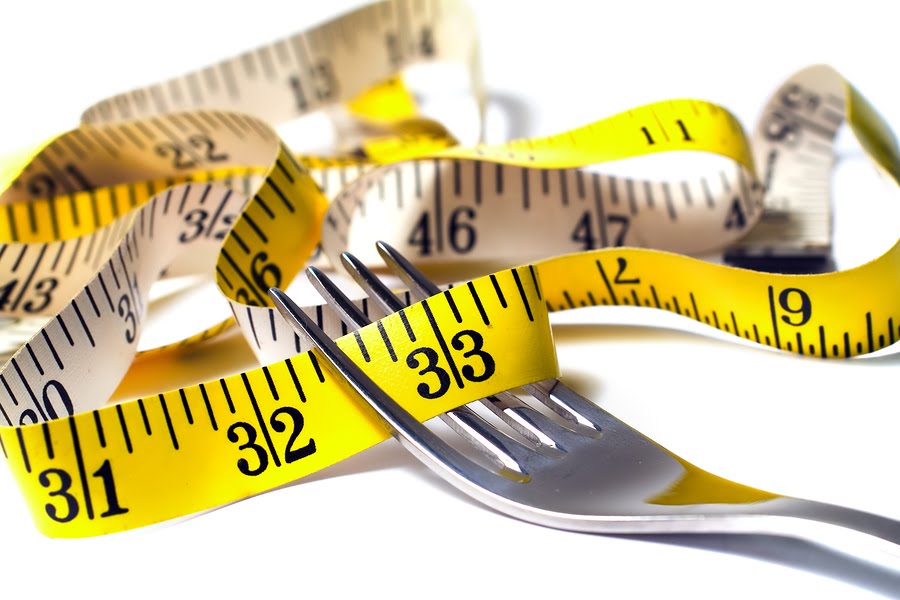Table of Contents
ToggleUnveiling the Truth: Debunking Common Female Dieting Myths
The fitness and health industry is saturated with misinformation regarding female fat loss. Women are fed an abundance of misinformation from the media, ‘nutritionists’ with zero credentials, and underqualified personal trainers. We are told to eat cereal for breakfast and even several times a day, cut out protein, don’t eat carbs after 3 pm, don’t eat carbs at night, fat will make you fat, replace all meals with shakes, and the list goes on. Leaving women more confused than ever when it comes to fat loss and leading them to a cycle of yo-yo dieting, chronic calorie restriction, excessive cardio, craving, binging, and weight regain. In this article, I have outlined the four biggest myths surrounding female fat loss.
Cereal for Breakfast
Cereal is a processed food product that has been marketed as a healthy breakfast option for women for decades. Arguably, some breakfast cereals are better than others however as a whole breakfast cereal as a meal is nutritionally void. Cereal contains almost zero protein and is commonly very high in sugar and high GI carbohydrates, resulting in an insulin spike first thing in the morning. This will give you an initial burst of energy but will soon after have you feeling hungry and tired (midday crash?). This hunger is going to have you leaning towards those high-carb and high-sugar snacks or that mid-morning coffee. Creating a perfect hormonal environment for fat gain. Most breakfast cereals also claim to have added ‘vitamins and minerals’ however a recent report by the EWG found that many of these are synthetic vitamins, which are not only not absorbed by the body but can be harmful too (1) which can contribute to fat gain.
Replacing several meals a day with cereal or shakes means you are missing out on a variety of important vitamins and minerals attained from other foods. Not only are you missing out on vital micronutrients needed for energy production and fat loss you are also missing protein and fat. Both of these are important macronutrients needed for hormone production, immune system function, detoxification, and overall health. Poor health is a poor environment for sustained fat loss.
Eating a calorie deficit of anything will make you lose weight. This is why ALL diets will work for some time. If you ate a chocolate chip cookie 3 times a day and nothing else you would lose weight (not fat but weight). However, these results will be short term and the long-term ramifications on your hormonal and metabolic pathways will result in weight regain, and a vast array of health issues (poor sleep, low sex drive, cravings, binging, poor gut health, joint issues). Again, this is not a good environment to lose body fat.
No Carbs After 3 pm
Carbohydrates are often seen as the enemy when it comes to weight loss. Several diets have made millions tricking women and men alike into reducing carbs to dangerously low levels as a temporary weight loss solution. Cutting out carbohydrates so early in the day can have a detrimental effect on your brain and body. Your brain’s preferred source of fuel is glucose which is obtained through the consumption of carbohydrates, without glucose your concentration can weaken and you may start to feel drowsy, tired, and fatigued. These feelings create the perfect hormonal environment for craving sugary and high-carb snacks.
Carbohydrates are not the enemy. Selecting the correct carbohydrates and consuming them at the right time throughout the day will help you lose weight. Low GI carbs such as whole grains, oats, rice, quinoa, and sweet potatoes will keep you fuller for longer, help you recover from training, and allow for a tapered energy release throughout the day. There is no benefit to cutting carbohydrates completely after 3 pm or altogether from your diet. A meta-analysis comparing the effects of an energy-restricted (calorie deficit) lower carbohydrate/higher fat diet with a higher carbohydrate/lower fat diet. Results of the study revealed both diets were equally effective at reducing body weight (2).
Protein Will Make Me ‘Bulky’
Protein should be a vital component in your diet. Protein is commonly associated with maintaining, building, and repairing muscle tissue. However, this is just one of the roles of protein in the body and only occurs after all other systems are taken care of. The reality is every cell in your body requires protein to function. Protein is comprised of amino acids needed for health, including; the healthy growth of your hair and nails, as well as bone health, hormone production, immune system, liver and detoxification, antibody production, and many more processes. Once all of these processes have been taken care of with adequate protein consumption then the body will look after the muscle tissue.
The myth that protein will make you gain too much muscle is a very far-fetched one. Women do not have the hormonal profile to gain undesirable muscle tone and get the ‘huge’ look. This requires a hard and regular training regime, eating a surplus of calories, and a strict supplement schedule. Female bodybuilders train for years and years to attain the look they have. It does not happen overnight and doesn’t happen merely by eating a high-protein diet, so don’t be fooled it is not that easy.
Protein is imperative for weight loss. A study showed diets higher in protein (>1g/kg/day) had greater fat loss effects compared to diets lower in protein (4). As a general rule, you should be consuming 1.5-2 grams of protein per kilogram of body weight per day. Preferably from animal sources due to their essential amino acid content.
Fat Makes You Fat
Cutting out or reducing your fat intake will not encourage or accelerate weight loss. Both mono- and polyunsaturated fats (healthy fats) serve as a basis for hormonal production, aid in lowering cholesterol levels, and reduce your risk of heart disease and diabetes.
Consumption of healthy fat promotes fat burning within the system. Often, we consume trans fats contained within baked and processed goods from store shelves. These fats are useless for our body and as such; we can’t use them for any effective purpose. These types of fats often put us in a surplus of calories and therefore can encourage fat gain.
In contrast, eating healthy fat also promotes proper hormonal function and a healthy metabolism; this means that you’ll burn fat faster. Healthy fat is also extremely important for the production and control of female sex hormones (testosterone and estrogen) which play a role in providing energy, libido, muscle mass, and a healthy menstrual cycle. An imbalance of these hormones can cause mood swings, reduced sex drive, irritability, PMS, depression, and anxiety. A study in men found if dietary fats are too low for too long, decreases in testosterone production occur (5).
Although there appears to be no difference following a high carbohydrate/lower fat diet and a low carbohydrate/high-fat diet when eating in a calorie deficit in terms of weight loss (2), the low carbohydrate/high-fat diet appears to be superior for fat loss in patients with metabolic disorders, diabetes, and women with PCOS (3).
Onwards and upwards
Now that you’ve had a chance to thoroughly read through these common myths and see the truth behind them all; you’d be forgiven for feeling a little annoyed at yourself if you’ve ever bought into any of them. One of the most important takeaways from this article is that ALL macronutrients are important, and each of them plays a unique role in body composition.
Millions of people every day are making the same mistakes over and over again; what’s sad is that the principles they pin all of their hopes on are very rarely based on any real scientific research. In a seminar nutrition seminar, I did with Dan Garner he used the quote “Nutrition is not a belief system. It is a science”. People typically decide they want to believe something, after which they tell others they should do the same to reinforce their own beliefs.
This is one of the main reasons why so many dieting myths have become so widespread; people are incredibly gullible when it comes to weight loss methods and those who preach their beliefs can be very overpowering. Now that you know the truth, you’re armed with the power of knowledge and can hopefully help others to avoid these common pitfalls too. If you have any questions about nutrition for fat loss, feel free to email me at mandy@localhost
References
- https://www.naturalnews.com/046008_fortified_foods_synthetic_vitamins_breakfast_cereals.html
- Hu, T., Mills, K. T., Yao, L., Demanelis, K., Eloustaz, M., Yancy, W. S., … & Bazzano, L. A. (2012). Effects of low-carbohydrate diets versus low-fat diets on metabolic risk factors: a meta-analysis of randomized controlled clinical trials.American journal of epidemiology,176(suppl 7), S44-S54
- Noakes, M., Keogh, J. B., Foster, P. R., & Clifton, P. M. (2005). Effect of an energy-restricted, high-protein, low-fat diet relative to a conventional high-carbohydrate, low-fat diet on weight loss, body composition, nutritional status, and markers of cardiovascular health in obese women.The American journal of clinical nutrition,81(6), 1298-1306.
- Krieger, J. W., Sitren, H. S., Daniels, M. J., & Langkamp-Henken, B. (2006). Effects of variation in protein and carbohydrate intake on body mass and composition during energy restriction: a meta-regression.The American journal of clinical nutrition,83(2), 260-274.
- Volek, J. S., Kraemer, W. J., Bush, J. A., Incledon, T., & Boetes, M. (1997). Testosterone and cortisol in relationship to dietary nutrients and resistance exercise.Journal of Applied Physiology,82(1), 49-54.





